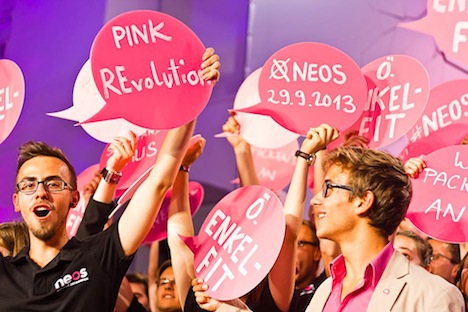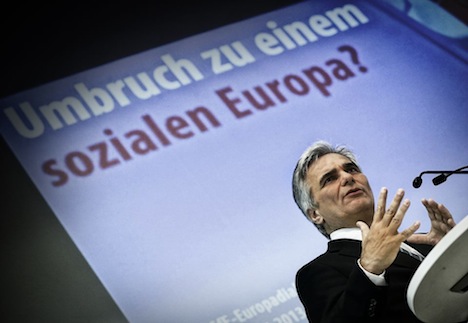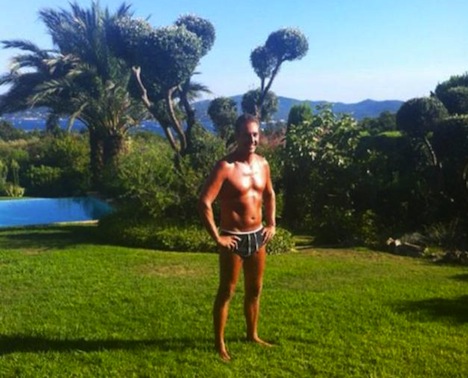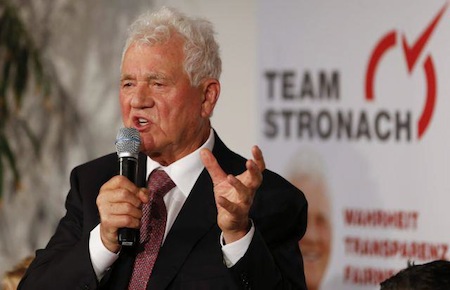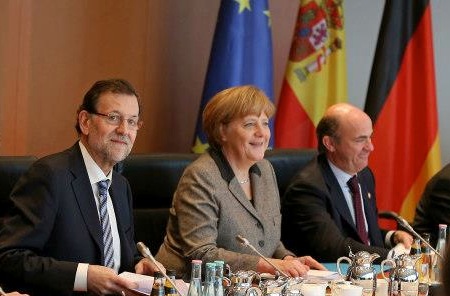While Germany’s major liberal party suffered a historic defeat in last weekend’s parliamentary elections, a new Austrian party may win enough seats to return a liberal voice to Austria’s parliament for the first time in nearly 20 years in Austria’s national elections this weekend.![]()
If it can win 4% of the vote on Sunday, the Das Neue Österreich (NEOS, The New Austria) could enter the Nationalrat, the key 183-member chamber of Austria’s parliament, which would mean that free-market and social liberals would have a voice in Austrian parliamentary politics for the first time since the Liberales Forum (Liberal Forum) lost all of its seats in the 1999 parliamentary elections. Polls in the lead-up to Austria’s election show the NEOS gaining strength, but still hovering between 3% and the 4% electoral hurdle, and the NEOS continues to gain credibility and momentum in the final days of the campaign.
What’s more, if the NEOS enter the parliament, and the two current governing parties, the center-left Sozialdemokratische Partei Österreichs (SPÖ, Social Democratic Party of Austria) of chancellor Werner Faymann and the center-right Österreichische Volkspartei (ÖVP, Austrian People’s Party), fail to win an absolute majority of seats to continue a two-party grand coalition, the NEOS could conceivably enter government as well in Europe’s first ‘red-black-pink’ coalition.
Given the coziness of Austria’s political elite, and the fact that grand coalitions have dominated Austrian governance in the postwar era, there’s much to recommend the return of a fresh and liberal voice to Austrian politics — or even Austrian government. Not too shabby for a party that didn’t exist one year ago.
The NEOS were founded as a political party in October 2012, mainly as an alliance of what remains of the Liberal Forum and the Young Liberals, another small party, under the leadership of Matthias Strolz. Since September, the party’s lead parliamentary candidate has been Hans-Peter Haselsteiner, the CEO of Austrian construction company Strabag and a Liberal deputy in the Nationalrat in the 1990s — it was a stunning reversal for Haselsteiner, who had previously remained somewhat aloof from the NEOS earlier this year. Not only does Haselsteiner have the deep pockets to finance a strong showing, he’s also one of the most well-known liberals in the country. Austrians vote for parties through an open-list proportional representation system, so if the NEOS surpass the 4% threshold, the NEOS should count on at least seven seats in the Nationalrat.
Moreover, if the NEOS do enter the Nationalrat, they could lower the total number of seats that the SPÖ and ÖVP can hope to win, making it even more likely that the SPÖ and ÖVP will be forced to look for a third coalition partner to cobble together a governing majority.
In an ironic twist, the NEOS could well enter Austria’s parliament just days after Germany’s Freie Demokratische Partei (FDP, Free Democratic Party) narrowly failed to win 5% of the vote and, accordingly, Germany’s liberal party failed to win a single seat in the Bundestag, the lower house of Germany’s parliament, for the first time since 1949. Continue reading Austrian NEOS may win seats in Nationalrat in resurrection of liberal politics
